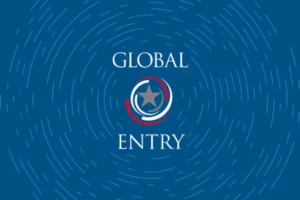About a year ago, I applied for Global Entry, which would allow me to skip passport control lines and expedite entry into U.S airports.
I’m traveling much more frequently these days for speaking and consulting, including a significant amount of international travel, so anything that makes the process a little easier is worth it to me.
After submitting the paperwork, I waited months for an interview, which took place at the airport. During that interview, the Customs and Border officer, while staring at a computer screen, asked me, “Have you ever been arrested?”
“Yes,” I said.
He nodded.
“And have you ever been charged with a felony?” he asked.
“Yes,” I said.
He nodded again.
“And were you indicted and tried for that crime?” he asked.
“Yes,” I said again.
Another nod.
I couldn’t tell if this interview was going well or poorly. He seemed pleased with my responses, but the line of questioning wasn’t exactly rainbows and bunnies.
Then he asked me where and when the trial took place, and I gave him my best guess:
Arrested in Bourne, Massachusetts, in 1992 and tried somewhere on Cape Cod in 1993. “Spring? I guessed. “Maybe April?”
“What was the result of that trial?” he asked.
“Not guilty,” I said.
This time, he did not nod. He explained to me that my case was not closed. According to the federal database, those charges against me were still pending — 32 years later.
It was as if I were still awaiting trial.
He told me that I would need to contact the clerk at the courthouse where my trial took place to get documentation indicating I had been found not guilty.
Other than knowing the trial took place somewhere on Cape Cod, I had no idea where that might be.
“It could be any town on the Cape,” I said. “I really don’t remember.”
“Good luck finding it,” the officer said.
Thus began the process of retrieving a 32-year-old record from an unknown courthouse that was presumably still in existence.
Phone calls to the Bourne police station, the Massachusetts Court System, and two different courthouses eventually led me to the Barnstable County Superior Court, where most felonies in Barnstable County are tried. And after several phone calls over several days to people working at the courthouse, I finally found myself speaking to a clerk with a Massachusetts accent that I once had and felt so familiar.
After explaining what I needed — a 32-year-old court record — she sighed.
“That document,” she said, “if it exists, is somewhere in the basement vault. None of that material was ever digitized. It could take us a while to find it, if at all.”
I sighed.
“I’ll contact you if we ever find it,” she said.
I was not hopeful.
The next day, I received an email. The clerk had found herself with some free time that morning and decided to make her way to the basement vault, where miraculously, in less than an hour, she found the document I needed.”
“It’s in the mail and on the way,” she wrote. “Three certified copies, in case you ever need it again.”
I immediately wrote a letter to the clerk and dropped it into the mail.
Two days later, I sent her flowers.
She thanked me for the gestures but assured me they weren’t necessary. “I was just doing my job.”
I explained to her that bureaucracy is so often brutal, inpenetrable, and exhausting. In this case, a simple document indicating my “not guilty” verdict — an outcome that someone failed to enter into a database more than three decades ago — was keeping me from avoiding the long lines and lost time associated with clearing customs.
As someone who values his time more than anything else, this was a big deal to me. Those hours in a customs line pile up quickly and could be spent with my family and friends. Absent this conscientious, industrious, and kind courthouse clerk, I might still be stuck in those long lines today.
I sent the document, marked “NG” for “not guilty,” to the Customs and Border office at the airport and waited, expecting to receive another call for a follow-up interview.
Yesterday, I received my Global Entry card by mail. A small card with my name and face that will return precious hours to me.
It sounds a little ridiculous, but receiving that card felt like an enormous accomplishment to me. I didn’t finish another novel, perform a new story onstage, write a new joke, teach a student to multiply by double digits, or even score a birdie on the golf course.
I navigated a system that included paperwork, phone calls, emails, a Customs and Border officer, and a court clerk. I spent nine months trying to obtain a small, laminated card that would allow me to bypass lines and travel to and from my destinations a little faster.







